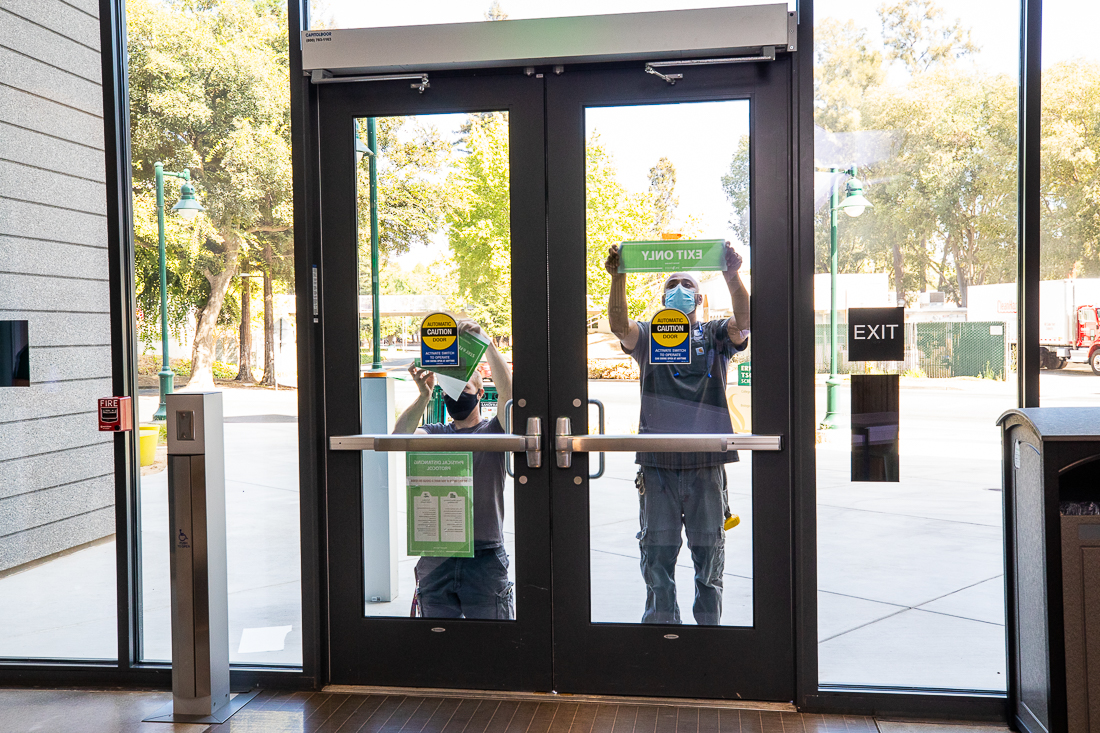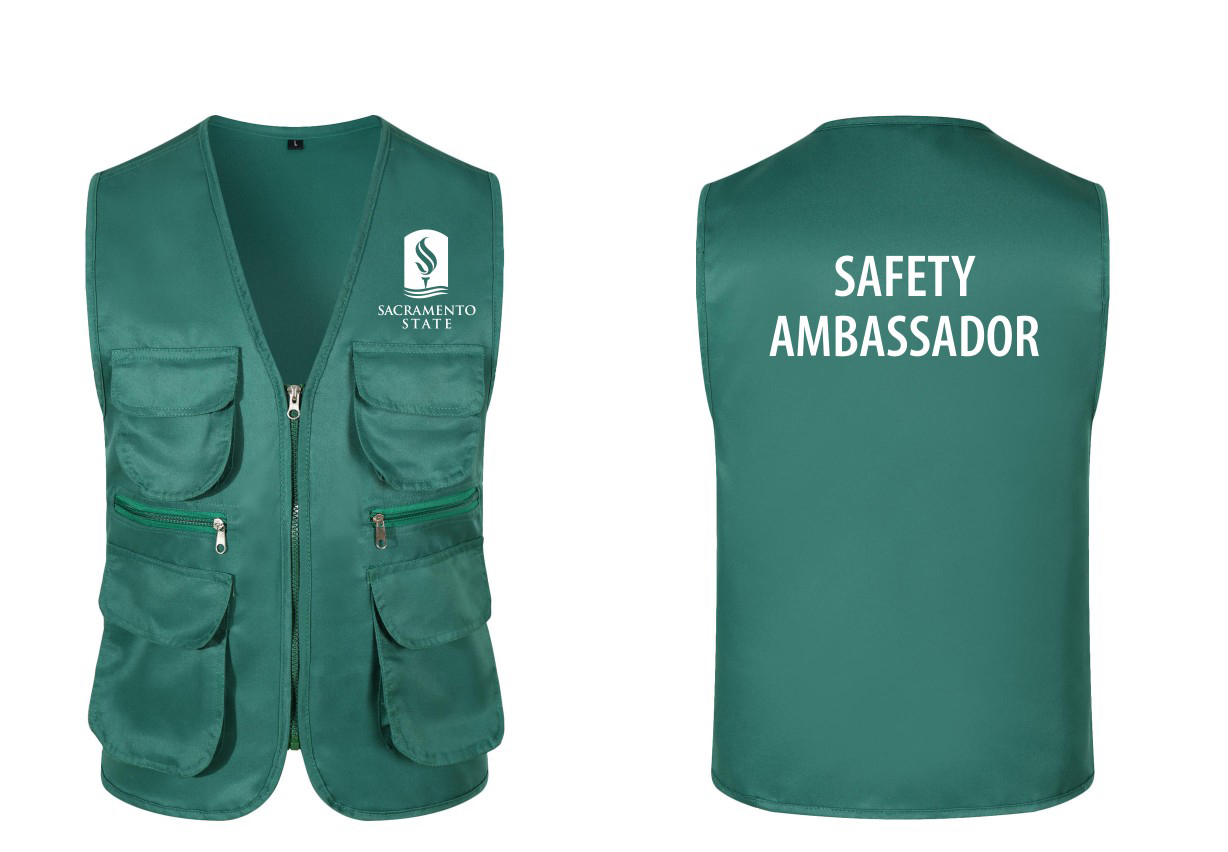 Student ambassadors are part of a multifaceted safety push at Sac State, which is being prepared for resumption of limited face-to face learning. (Sacramento State/Andrea Price)
Student ambassadors are part of a multifaceted safety push at Sac State, which is being prepared for resumption of limited face-to face learning. (Sacramento State/Andrea Price)
By Dixie Reid
As a limited number of students, faculty, and staff return to campus Aug. 31 in the midst of the COVID-19 pandemic, Sacramento State has an innovative plan to reduce as much as possible the risk of anyone contracting the coronavirus.
The Student Safety Ambassadors program — perhaps the first of its kind in the CSU and possibly the nation — will deploy as many as 100 students to academic buildings across campus to help implement the University’s COVID-19 safety protocols
They will open doors and push elevator buttons with gloved hands, eliminating the need for multiple people to touch common areas. They will alert Risk Management Services if they see any group congregating in hallways or shared spaces before or after class.
 Gear to be worn by Student Safety Ambassadors.
Gear to be worn by Student Safety Ambassadors.They also will report any safety concerns shared by students, faculty, and staff.
“We will react in real time to address any issues,” said Gary Rosenblum, associate vice president for Risk Management Services.
“Much of the success of the safety plan depends on people always doing the right thing on our campus. The ambassadors are diplomats in a sense that they remind and coach people rather than act as enforcers.”
Safety ambassadors also will hand out face coverings and hand sanitizer as needed.
Gov. Gavin Newsom in June issued an executive order requiring everyone, with limited exceptions, to wear a face covering in indoor public spaces and outdoors when 6 feet of distancing is not possible.
Covering the nose and mouth helps to reduce the spread of the coronavirus, particularly when combined with physical distancing and frequent handwashing.
Sac State’s COVID-19 safety protocols also encourage anyone without business at the University, either class or work, to stay away from campus.
“If there is something we can do to help protect the Hornets who are still on campus, and their families, we should do it,” said Usman Muhammad, who was one of the first students hired as a safety ambassador. “This program was Sac State’s response to what more we can do, so the decision to apply was simple.”
Safety ambassadors will earn $13 an hour and work up to 20 hours a week.
Interested students may apply for the program by going to csus.handshake.com and searching for “Student Safety Ambassador” or the position number 3913618.
The idea for the program originated in Risk Management, and Rosenblum soon hit upon the notion of hiring students to fill the positions.
“A whole host of them aren’t working because their jobs have disappeared,” he said. “Maybe they worked in Dining Services, and the eateries are closed, or as resident assistants in the residence halls, and some dorms closed, or at The WELL, where the recreation side is closed. A lot of students are out of work.”
The program is supported by Sac State’s Division of Administration and Business Affairs (ABA), Risk Management, and University Housing Services. Myra Cheah and Kendrick Daly, both Residence Life coordinators in University Housing, will supervise, evaluate, and schedule the students.
A one-day virtual training session is set for Friday, Aug. 28. Safety ambassadors begin work Monday, Aug. 31, the first day of classes.
“They will be stationed throughout the academic buildings to make sure that COVID guidelines and policies are followed,” said Adam Dowrie, University Housing’s assistant director for Programming and Staff Selection.
“They will assist students, faculty, and staff entering those buildings, and eliminating anyone else touching high-contact points will help to mitigate the spread of COVID-19.”
Sac State will continue to employ student safety ambassadors as long as the pandemic is a concern, Dowrie added.
“The Student Safety Ambassadors program is just a start,” said Muhammad, whose double major is in Civil Engineering and Applied Mathematics. “The more we keep problem-solving, the more likely we are to come up with new ways to flatten the curve. That’s how it starts. First a community gets safer, and then a city, and then the world.
“Right now, Student Safety Ambassadors is our attempt at starting small.”
